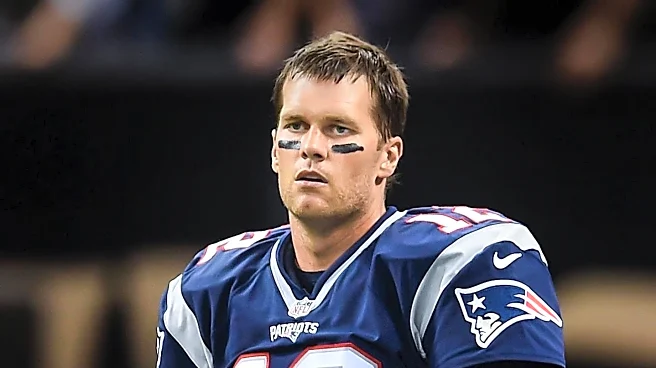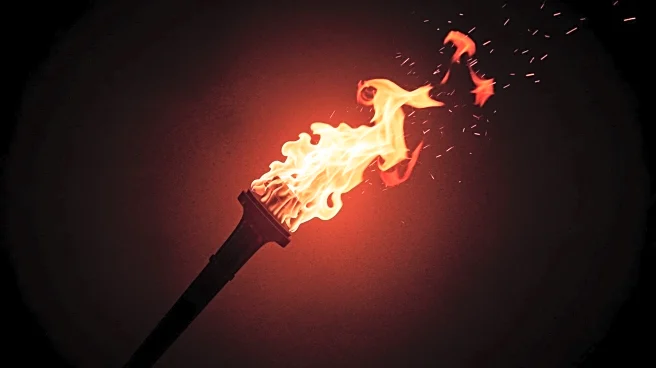What's Happening?
Tom Brady, former NFL quarterback, has disclosed that his current dog, Junie, is a clone of his previous dog, Lua, who passed away in December 2023. The cloning was facilitated by Colossal Biosciences, a biotech company in which Brady is an investor.
The company used blood samples collected before Lua's death to create the clone. This announcement coincides with Colossal's acquisition of Viagen Pets and Equine, another biotech firm specializing in pet cloning. Brady expressed his gratitude for the technology, which he believes offers a second chance for families to reconnect with their beloved pets.
Why It's Important?
The revelation of Tom Brady's involvement in pet cloning highlights the growing intersection of biotechnology and personal life. This development underscores the potential of cloning technology to impact pet ownership and conservation efforts. By investing in such technology, Brady is contributing to advancements that could help preserve endangered species and offer solace to pet owners. The story also raises ethical questions about cloning and its implications for biodiversity and animal welfare. As cloning becomes more accessible, it may lead to broader societal discussions about the role of technology in personal and environmental contexts.
What's Next?
With the acquisition of Viagen Pets and Equine, Colossal Biosciences is poised to expand its capabilities in the field of cloning. This could lead to increased availability of cloning services for pet owners and potentially new applications in conservation biology. The collaboration between Colossal and Viagen may also drive further research into the ethical and practical aspects of cloning, influencing regulatory frameworks and public perception. As these technologies evolve, they may prompt discussions among policymakers, scientists, and the public about the future of cloning and its place in society.
Beyond the Headlines
The use of cloning technology in pet ownership raises ethical considerations about the commodification of life and the potential consequences for genetic diversity. It also prompts reflection on the emotional and psychological impacts of cloning on pet owners and their families. As cloning becomes more prevalent, it may challenge traditional notions of life, death, and the natural order, leading to philosophical debates about the boundaries of science and technology.















